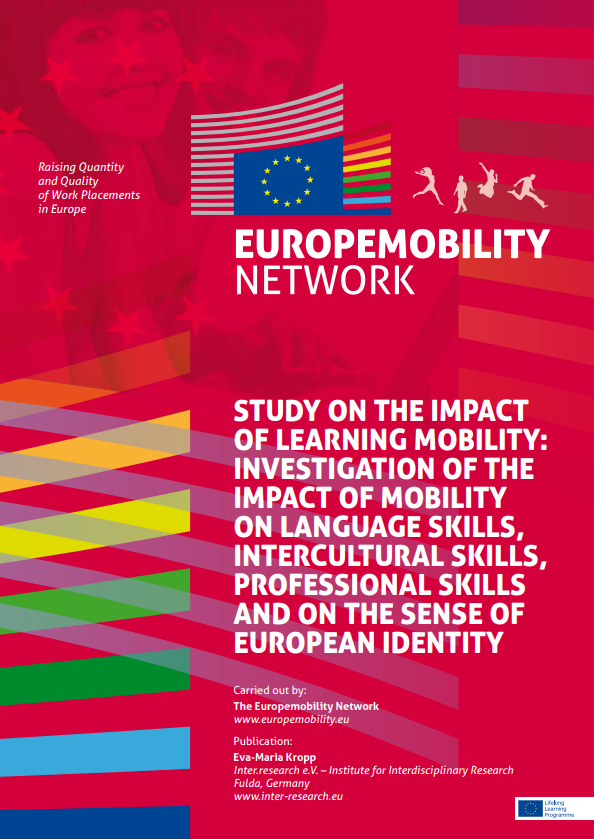This study investigates the impact of learning mobility on language skills, intercultural skills, professional skills as well as the impact on a sense of “European identity”.
The study compares self-assessment data between learners, who have been abroad for at least one period for learning and/or working (mobile group) and learners, who have never been abroad for learning and/or working (control group).
The results of the data support the assumption that mobility can have a positive impact on the level of language, intercultural as well as professional skills. The results correspond with previous studies that were made to investigate the impact of mobility. Further, the data shows that mobility can increase the “Feeling as European”. In our study the mobile learners have a higher voter turnout for the European election (May 2014) compared to the control group.
Due to the fact, that this is a cross-section study design, we are not in the position to draw conclusions about the causality, as we do not know, if the skills are influenced by the mobility experience or if learners with a higher level of skills tend more to go abroad anyway. However, the study provides insight in interesting distributions of data in the mobility group and in the control group, and the study supports several assumptions about the impact of mobility on learner’s skills and competences as well as on learner’s “European Identity”.

